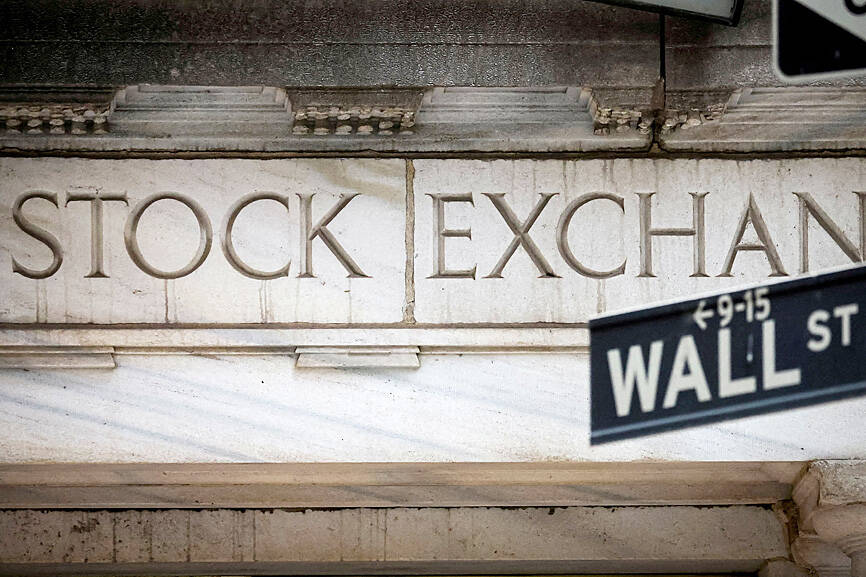Kyverna Therapeutics Inc shares rose as much as 59 percent in early trading on Thursday after its expanded US initial public offering (IPO) raised US$319 million, as drug developers continue to receive a warm welcome from new investors.
Emeryville, California-based Kyverna’s shares gave back some of those gains to end the session at US$30 each in New York, 36 percent above the IPO price of US$22.
At that price, the Bain Capital LP-backed biotechnology company has a market value of about US$1.2 billion.

Photo: Reuters
The opening surge was the biggest for a company raising more than US$100 million in an IPO since Cava Group Inc’s US$365 million debut in June last year, according to data compiled by Bloomberg.
Kyverna had a tough time deciding who to allocate shares to given “very large mutual funds were willing to come into the story and wanted to be part of” the deal, chief executive officer Peter Maag said in an interview. The IPO was about “20-times oversubscribed,” he said.
“This is a tremendous outcome for the organization as it gives us the capital to execute our clinical trial program,” Maag said.
The funds are expected to provide a runway into 2026 and set it up for potential pivotal trials, he said.
The strong results continue a streak of therapeutics companies drawing heightened investor demand.
The offering is the second-largest for a drug developer this year, after cancer-focused CG Oncology Inc raised US$437 million two weeks ago, according to data compiled by Bloomberg. Its shares have more than doubled since its debut.
Kyverna’s lead medicine is a CAR T-cell therapy for autoimmune diseases in rheumatology and neurology. Bain Capital, Gilead Sciences Inc, Vida Ventures LLC and Westlake BioPartners LLC are among Kyverna’s largest investors, according to the company’s filings with the US Securities and Exchange Commission.
Kyverna is part of a busy week for US IPOs that includes American Healthcare REIT Inc, which raised US$672 million and is up nearly 10 percent, and a Mexican grocery chain. Also in biotech, Moderna Inc-backed Metagenomi Inc’s offering was slated to price later on Thursday.
HSBC Innovation Banking managing director Jonathan Norris expects about 25 venture capital-backed biotech IPOs in the US and Europe this year.
There will be “more later-stage than earlier companies with a focus on drugs that have opportunities for catalysts in the near-term,” Norris said.
Drug developers have been actively raising cash through sales of new shares to public investors this year.
The industry has raised nearly US$5 billion via follow-on offerings, data compiled by Bloomberg showed, more than double the amount seen through Feb. 7 last year.

With an approval rating of just two percent, Peruvian President Dina Boluarte might be the world’s most unpopular leader, according to pollsters. Protests greeted her rise to power 29 months ago, and have marked her entire term — joined by assorted scandals, investigations, controversies and a surge in gang violence. The 63-year-old is the target of a dozen probes, including for her alleged failure to declare gifts of luxury jewels and watches, a scandal inevitably dubbed “Rolexgate.” She is also under the microscope for a two-week undeclared absence for nose surgery — which she insists was medical, not cosmetic — and is

GROWING CONCERN: Some senior Trump administration officials opposed the UAE expansion over fears that another TSMC project could jeopardize its US investment Taiwan Semiconductor Manufacturing Co (TSMC, 台積電) is evaluating building an advanced production facility in the United Arab Emirates (UAE) and has discussed the possibility with officials in US President Donald Trump’s administration, people familiar with the matter said, in a potentially major bet on the Middle East that would only come to fruition with Washington’s approval. The company has had multiple meetings in the past few months with US Special Envoy to the Middle East Steve Witkoff and officials from MGX, an influential investment vehicle overseen by the UAE president’s brother, the people said. The conversations are a continuation of talks that

CAUTIOUS RECOVERY: While the manufacturing sector returned to growth amid the US-China trade truce, firms remain wary as uncertainty clouds the outlook, the CIER said The local manufacturing sector returned to expansion last month, as the official purchasing managers’ index (PMI) rose 2.1 points to 51.0, driven by a temporary easing in US-China trade tensions, the Chung-Hua Institution for Economic Research (CIER, 中華經濟研究院) said yesterday. The PMI gauges the health of the manufacturing industry, with readings above 50 indicating expansion and those below 50 signaling contraction. “Firms are not as pessimistic as they were in April, but they remain far from optimistic,” CIER president Lien Hsien-ming (連賢明) said at a news conference. The full impact of US tariff decisions is unlikely to become clear until later this month

Nintendo Co hopes to match the runaway success of the Switch when its leveled-up new console hits shelves on Thursday, with strong early sales expected despite the gadget’s high price. Featuring a bigger screen and more processing power, the Switch 2 is an upgrade to its predecessor, which has sold 152 million units since launching in 2017 — making it the third-best-selling video game console of all time. However, despite buzz among fans and robust demand for pre-orders, headwinds for Nintendo include uncertainty over US trade tariffs and whether enough people are willing to shell out. The Switch 2 “is priced relatively high”